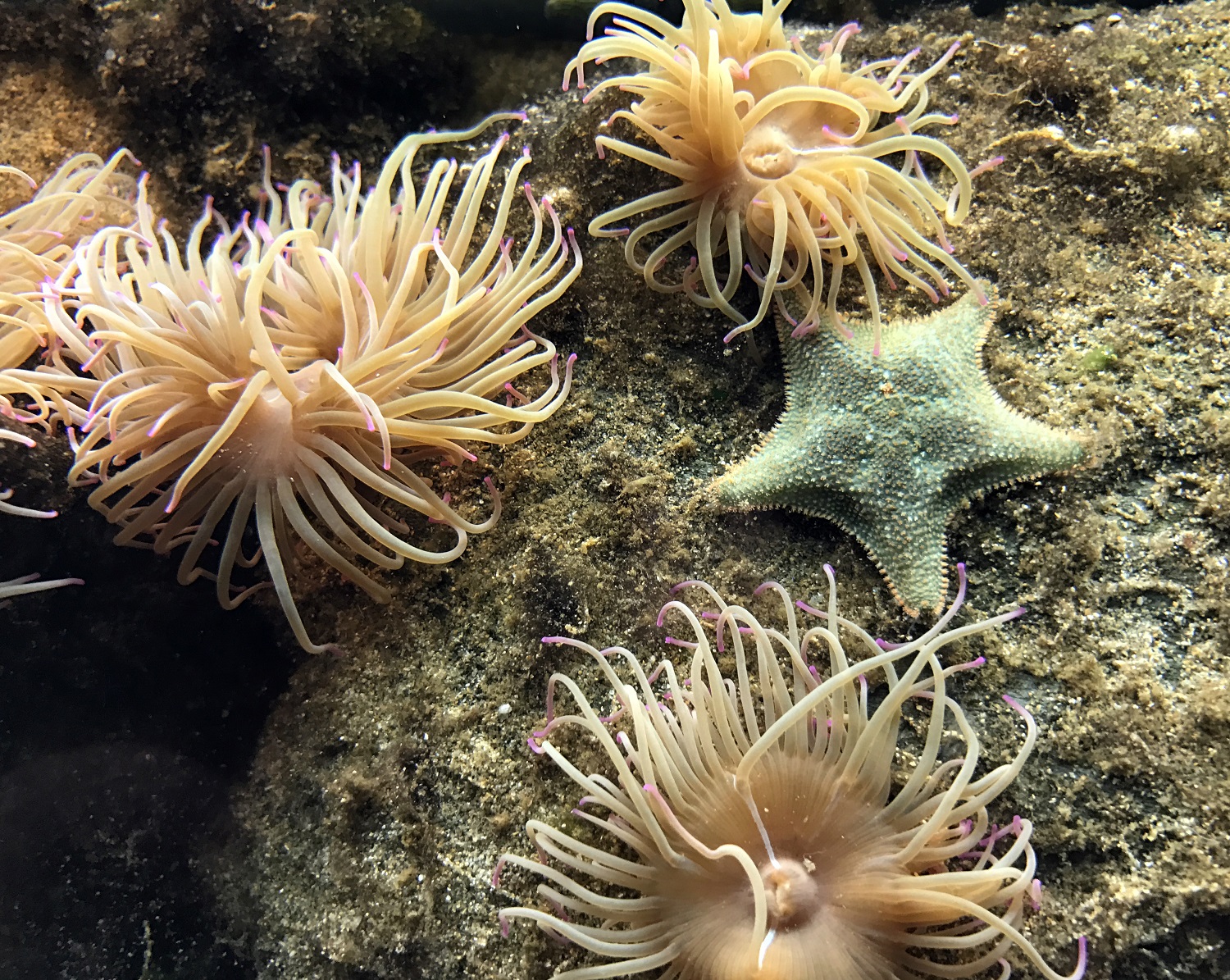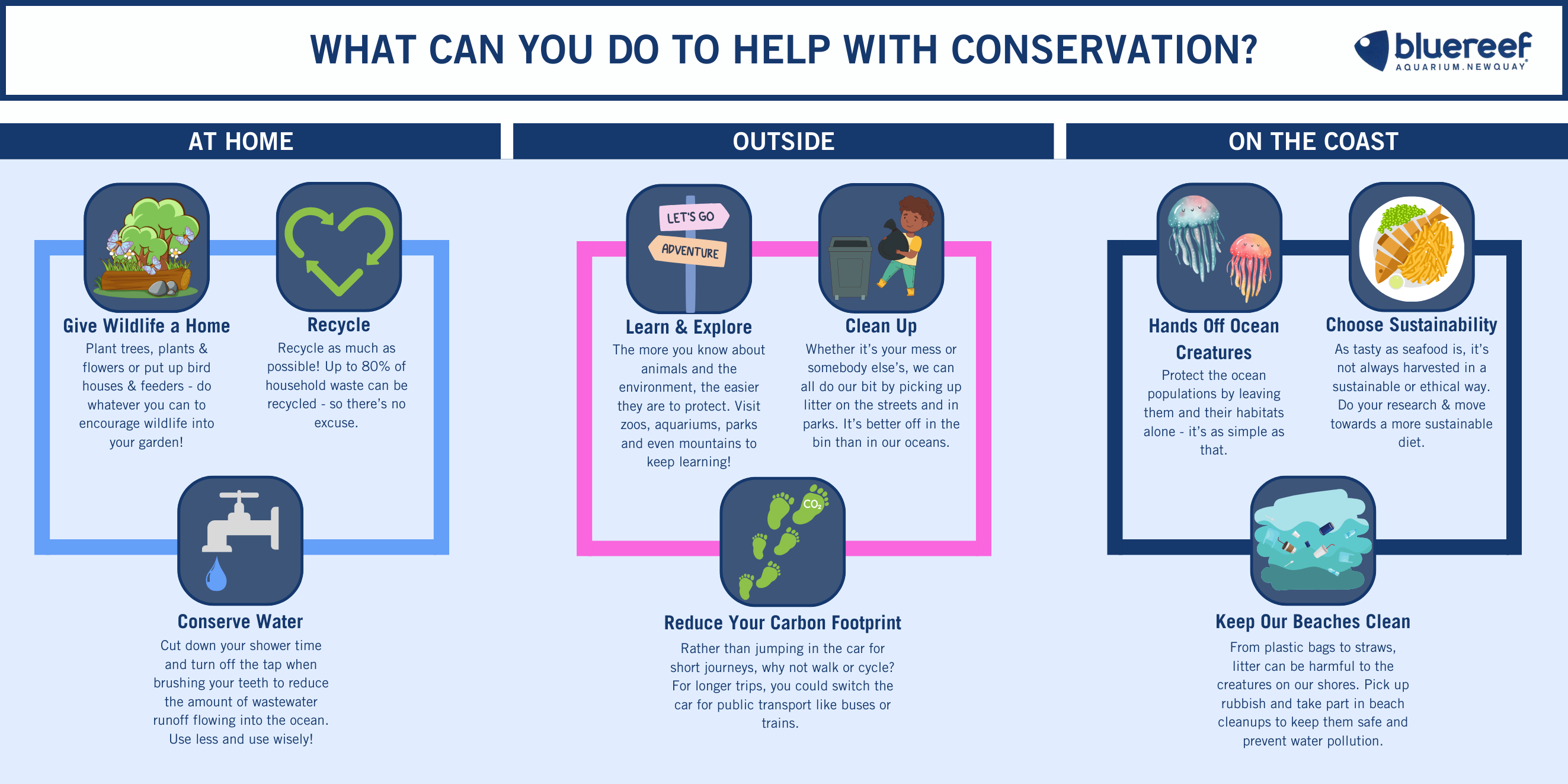
Saving the oceans and looking after our environment requires all of us to pitch in. So if you’re ready to find out what you can do to help, you’re in the right place!
Here are some small changes we can all make in our lives to collectively help conserve our World’s waters for many years to come. They may seem like small, insignificant acts on their own, but together, we can have a huge impact and change things for the better!
- Reduce your carbon footprint!
This is something we hear a lot, but how can we reduce our carbon footprint? No matter who you are, we can all make small changes that can have a big impact on carbon emissions with the big goal being net zero by 2030.
There are lots of ways to reduce your carbon footprint, including reducing your energy consumption, insulating your house, using public transport, driving fuel-efficient vehicles, buying locally sourced organic food, avoiding air travel and using renewable energy. Even if you do just one of these things, you’ll be taking a step in the right direction for reducing global emissions and keeping your personal carbon footprint down.
- Clean up after yourself
Whether you’re having a picnic or simply enjoying the beach, lake, or river – the litter that’s left behind can be damaging to the environment. Not only does it make our public spaces look untidy, but it also ends up being washed away through drains or sewers which lead to our lakes, oceans and seas. Plastics or other non-biodegradable materials can seep into our waters where they’ll stay for centuries to come, leaving behind harmful pollutants and damaging populations and habitats as they go.
Taking part in beach cleaning is incredibly important because of how often our sea creatures are affected by litter on the shores. Plastic bags can easily be mistaken as tasty jellyfish by sea turtles, while other sea creatures can become trapped or injured at the hands of our litter. You can help protect marine life by doing something as simple as picking up rubbish – wherever you are.
- Choose sustainably harvested seafood
Unfortunately, not all seafood is sourced ethically or sustainably, which could be contributing to dwindling fish populations and damaging marine conservation efforts. By choosing more sustainable options to include in your meals, you’re helping to conserve fish populations and protect them from overfishing.
Check out the Marine Conservation good fish guide on which fish to choose and which is best to avoid.
- Provide a good environment for wildlife
How can you help the environment without looking after wildlife and giving creatures a safe space to exist? All healthy habitats need four basic elements: food, water, shelter and a place to raise young. So get to work planting native trees and flowers to house bigger animals like birds and squirrels, while also protecting the smallest creatures such as worms and other insects. You can also give them food and water by hanging birdhouses from trees, and you could even put out baths and feeders if you’ve got the space.
The more areas available for wildlife to exist in with little disruption, the more they’ll flourish!
- Be a good pet owner
Owning a pet is a big responsibility. This is why a lot of thought should go into how you find your pet, what you feed them and how you look after them. Whether you’re a cat person or a dog lover, always consider adopting before buying a puppy. Thousands of animals are left without a home for many different reasons, and the ethical thing to do is to provide them with a home rather than encouraging unethical breeding practices. It’s also important to neuter your dog or cat if you don’t want any surprise puppy or kitten litters.
Responsible breeding and ownership of pets can help all of us share food and other resources better.
- Hands off
Ocean creatures usually prefer a specific type of habitat, and if this is changed in any way, they can find themselves in danger. Whether they’re exposed to predators or humans start poking around, all of this can be harmful to populations of important species, both big and small.
Never try to touch stingrays or any other ocean animals. By being respectful of their lives and homes, you’ll help protect their populations for future generations and prevent them from becoming endangered, or worse.
- Recycle, Recycle, Recycle!
Recycle as much as possible! Up to 80% of household waste is actually recyclable, but many choose not to separate their waste properly to save time. Spending an extra few minutes of your day splitting your rubbish into items that can be recycled and those that can’t, and reduce the amount of waste that ends up in landfills and our oceans.
You can even learn to repurpose items or upcycle them, to get used out of existing materials rather than encouraging the creation of raw materials, which can often be damaging to the environment.
- Shop responsibly
Lots of us love a shopping trip. But how often do you think about whether the packaging on items is sustainable or can be recycled? Challenge yourself to buy things that come in recycled packaging, or with as little packaging as possible. Reuse your shopping bags and try to buy recycled paper and products.
The products you’re buying can also be more sustainable. Try to look for products that have been grown, made or sourced ethically and that don’t contribute to over farming, overfishing, or taking too much away from our finite resources. Instead, opt for organic foods, locally grown foods, and Fairtrade products.
- Use less water
Every living thing needs water to survive. But this precious resource is in constant demand. Water conservation is a top priority as global warming continues to worsen and temperatures worldwide are rising.
Did you know that a family of four can save up to 5,000 litres of water a month by keeping their showers under five minutes? Or that the amount saved by turning off the tap while brushing teeth is 3600 litres a month. Hold yourself responsible for using less water and try to use it more wisely!
- Learn and explore
Learn as much as you can about animals and the planet by visiting accredited zoos and aquariums, reading, watching documentaries and surfing the web. Go out and explore our beaches, rockpools and mountains safely and carefully to discover the wonders of the planet and how everything co-exists.
Taking part in awareness days like World Ocean Day can also help – this one can give you lots of extra ideas for ocean conservancy and how we can all work together to achieve it.
We hope you’re just as passionate as we are about marine conservation and protecting the planet. To find out more about how we’re working towards conservation at Blue Reef Aquarium Newquay, check out a few of the wonderful charities we’ve worked alongside to help raise awareness.

